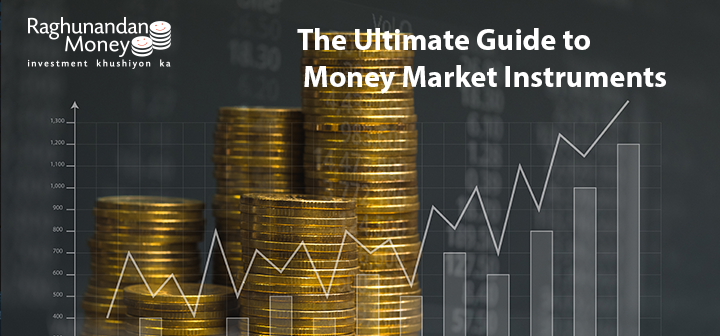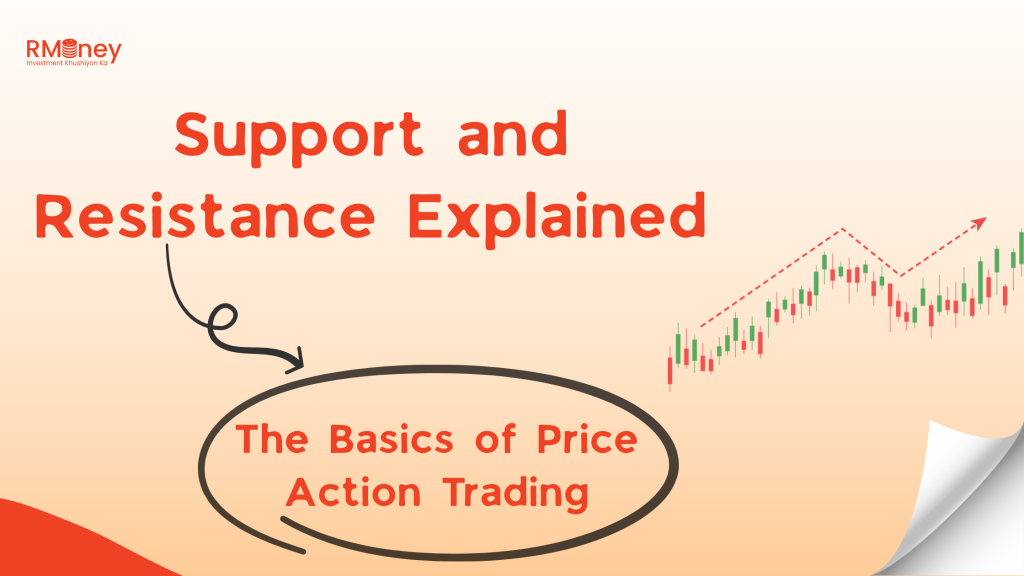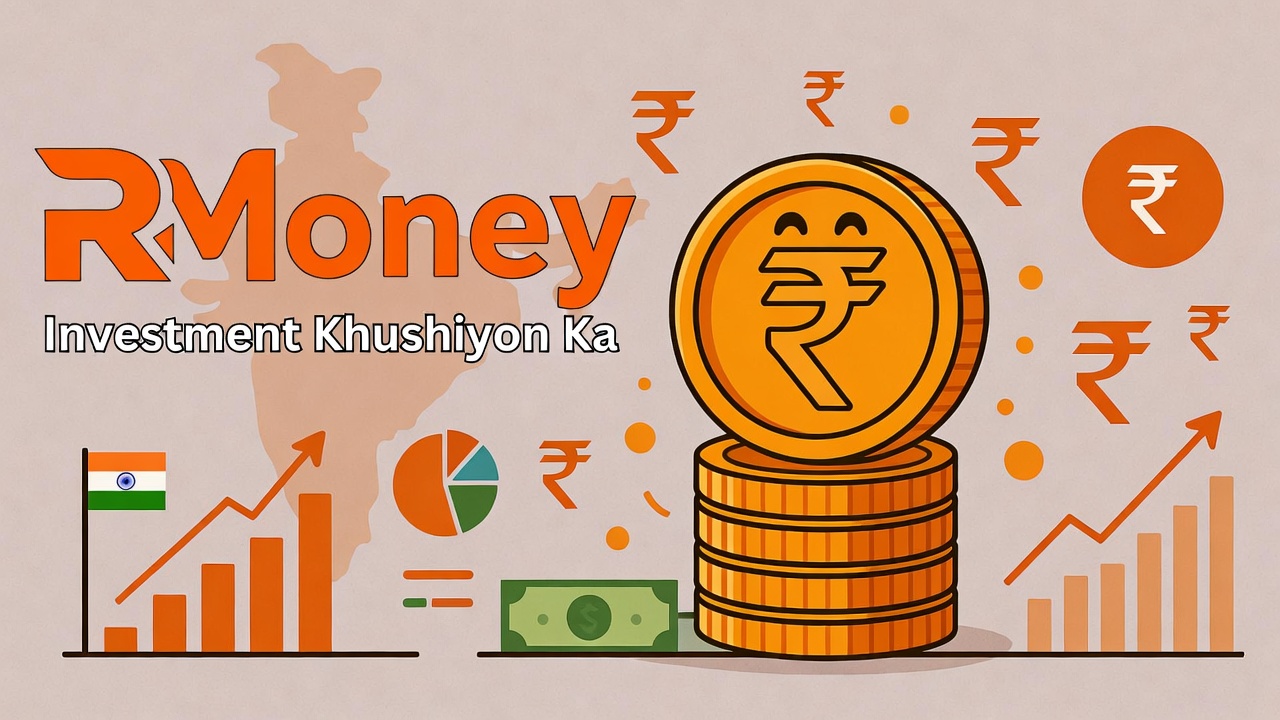RBI defines ‘Money market’ as the market where financial assets are traded for the short term. The assets traded in the money markets are considered to be near substitutes of money. These instruments effectively help in the money exchange that is carried out in the primary and the secondary market.
Thus, it can be rightly said that the money market facilitates the buying and selling of short-term funds having a duration of one year. If we talk about the two main characteristics of financial instruments being traded in the money market then they rightly are high liquidity and short maturity.
Money market transactions are carried out through various instruments like trade bills, promissory notes, etc. and not in cash. Also, the transactions are carried out via a medium and not through a stockbroker.
What objectives does the money market serve?
Some of the important objectives served by money markets are as follows:
- It helps in lowering the short-term deficit in an economy.
- It helps in the storage of short-term surplus funds.
- It helps the central bank in regulating the country’s liquidity.
- It helps short-term fund users to attain their needs at reasonable costs.
- It helps in the development of the country’s capital market.
- It helps in writing down effective monetary policies.
- It streamlines the functioning of the commercial banks effectively.
Money Market Instruments
Money market instruments are the instruments or tools that are used to operate in the money market. They are short-term financing instruments that aim to increase the financial liquidity of a business. The prime characteristic of these instruments is that the money market instruments can be easily converted to cash. Hence, these instruments serve the dual purpose of allowing borrowers to meet their short-term requirements and at the same time provide easy liquidity to the lenders.
The money market and the money market instruments are traded usually over the counter; hence they cannot be done by standalone individual investors themselves. Their trading is done through a certified stockbroker or through a money market mutual fund.
Types of Money Market Instruments:
The following are the different types of money market instruments one can trade and invest in.
- Treasury Bills: Treasury Bills are also popularly called as the T-Bills. They are issued by the Reserve Bank of India (RBI) and are issued on the behalf of the Government of India in order to raise money from the public. They are referred to as one of the safest money market instruments as they are backed by the Government of India. T-Bills have short term maturities that go maximum to one year. At present they are issued with three different maturity periods including 91 days T-Bills, 182 days T-Bills, and 1-year T-Bills. They are issued at a discounted face value. Treasury bills have zero risk instruments; as a result, the returns on them are not attractive.
When the treasury bills mature, the investor gets the face value. Hence, the return earned on the treasury bills is the difference between the initial value and the face value at the time of maturity of the instrument. The buying price of the bill is decided by bidding done via auction.
- Commercial Papers: Commercial Papers are the promissory notes that are issued by large companies and businesses in order to raise capital to meet short term business needs. They are issued by the companies to raise capital directly from the markets. They are issued mainly by the companies with high credit ratings and thus are unsecured promissory notes. The credibility of the company acts as the security for these financial instruments. Commercial Papers have a fixed maturity ranging somewhere between 1 day to 270 days. Commercial Papers offer higher returns compared to the treasury bills and also are riskier. Commercial Papers are actively traded in the secondary market.
- Certificates of Deposits (CDs): A Certificate of Deposit or CD acts as a deposit receipt that is deposited with the financial institution or the banks. CDs offer a fixed interest on the amount of money that is invested by the investors. The Certificates of Deposits differ from Bank’s Fixed Deposits in two main ways. First, the CDs are issued only for the large sums of money and secondly, CDs are freely negotiable. Certificates of Deposits have low risk and offer higher returns when compared to treasury bills and term deposits. The added advantage that is offered by CDs is that they are relatively liquid. The maturity of the CDs ranges somewhere between 7 days to 1 year. These instruments, like treasury bills, are issued at a discounted price. The CDs issued by banks have a duration ranging from 3 months, 6 months, to 12 months. However, Certificates of Deposits issued by other financial instruments have a maturity period ranging from 1 year to 3 years.
- Repurchase Agreements (Repo): They are also known as Repos and Buybacks and are a formal agreement between two parties. One party is the seller of the security that promises to buy the security back from the buyer at a later date. This is also referred to as Sell-Buy Transaction. These transactions can only be carried out between the parties that have been approved by RBI and only for the instruments that have been approved by the Reserve Bank of India.
- Bankers Acceptance: Bankers Acceptance is a document that is guaranteed by a commercial bank. Bankers Acceptance is used in money market funds, just like treasury bills, and the details of the document are specified including the amount to be repaid, the date of the repayment, and the individual’s details to whom the repayment is due. The maturity of these instruments ranges somewhere between 30 days to 180 days. They are issued at a discounted price and the actual price is paid to the holder of the security at the time of maturity. The difference between the two amounts is the profit that is made by the holder of the instrument.
Investors can choose from the above and invest their money in any of the money market instruments as per their requirements. They are popular among the investors as they are safe however, the returns generated by these instruments are low. They help in the diversification of the investor’s portfolio to reduce the risk and to maximize the returns.

Stock Trading Now trade in ₹9 Per Order or ₹ 999 Per Month Plans.
Future & Options Access F&O contracts with advanced tools for hedging and speculation.
Currency Trading Trade in major currency pairs and manage forex exposure efficiently.
Commodity Trading Diversify Trading with MCX & NCDEX by Trading in Gold, Silver, Base Metals, Energy, and Agri Products.
Margin Trading Funding Boost your buying power with upto 5X, Buy now Pay Later
Algo Trading Back test, Paper Trade your logic & Automate your strategies with low-latency APIs.
Trading View Leverage Trading View charts and indicators integrated into your trading platform.
Advanced Options Trading Execute multi-leg option strategies with precision and insights.
Stock Lending & Borrowing Earn passive income by lending stocks securely through SLB.
Foreign Portfolio Investment Enable NRIs and FPIs to invest in Indian markets with ease and compliance.
IPO Invest in upcoming IPOs online with real-time tracking and instant allotment updates.
Direct Mutual Funds 0% Commissions by investing in more than +3500 Direct Mutual Fund Scheme.
Corporate FDRs Earn fixed returns with low-risk investments in high-rated corporate fixed deposits.
Stocks SIPs Build long-term wealth with systematic investment plans in top-performing stocks.
Bonds & NCDs Access secure, fixed-income investments through government and corporate bond offerings.
Depository Services Safely hold and manage your securities with seamless Demat and DP services with CDSL.
Journey Tracing our growth and milestones over time.
Mission & Vision Guided by purpose, driven by long-term vision.
Why RMoney Platform Smart, reliable platform for all investors' needs.
Management Experienced leadership driving strategic financial excellence.
Credentials Certified expertise with trusted industry recognition.
Press Release Latest company news, updates, and announcements.
Testimonials Real client stories sharing their success journeys.
7 Reasons to Invest Top benefits that make investing with us smart.
SEBI Registered Research Trusted insights backed by SEBI-compliant research.
Our Technology Advanced tools enabling efficient online trading.
Calculators Access a suite of smart tools to plan trades, margins, and returns effectively.
Margin Calculator Instantly check margin requirements for intraday and delivery trades.
MTF Calculator Calculate MTF funding cost upfront to ensure full transparency before placing a trade.
Brokerage Calculator Know your exact brokerage charges before placing any trade.
Market Place Explore curated investment products and trading tools in one convenient hub.
RMoney Gyan Enhance your market knowledge with expert blogs, videos, and tutorials.
Performance Tracker Track our research performance with full transparency using our performance tracker.
Feedback Share your suggestions or concerns to help us improve your experience.
Downloads Access important forms, software, and documents in one place.
Locate Us Find the nearest RMoney branch or service center quickly.
Escalation Matrix Resolve issues faster with our structured support escalation process.
Back Office Log in to view trade reports, ledger, and portfolio statements anytime.
Account Modification Update personal or bank details linked to your trading account.
Fund Transfer Transfer funds instantly online with quick limit updation to your trading account.
Bank Details View our registered bank account details for seamless transactions by NEFT, RTGS or IMPS.
How to Apply IPO Step-by-step guide to apply for IPOs using your trading account.
RMoney Quick Mobile App Trade on-the-go with our all-in-one mobile trading app.
RMoney Quick login Quickly access your trading account through the RMoney Quick web-based trading.
RMoney Rocket Web Version Experience powerful web-based trading with advanced tools for algo traders.
RMoney Rocket Mobile Version Trade anytime, anywhere with our feature-rich mobile trading platform.



















